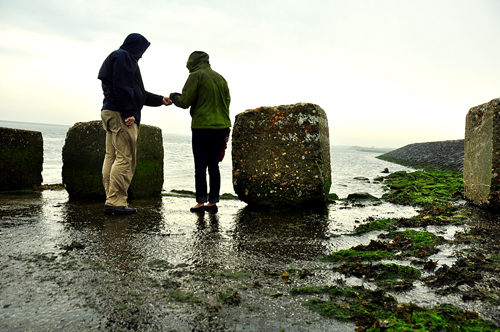Portland State’s Institute for Sustainable Solutions has teamed up with a group of 25 international interdisciplinary graduate students planning to sustain the future of river deltas around the world and balance clean water through ecological and community health and economic development.
Saving the world’s deltas

Portland State’s Institute for Sustainable Solutions has teamed up with a group of 25 international interdisciplinary graduate students planning to sustain the future of river deltas around the world and balance clean water through ecological and community health and economic development.
The ongoing study is to be completed in three key steps: reviewing sustainable approaches to tackle issues, using team knowledge and different sustainable development frameworks to create an approach, then taking the approach to a delta case study in Indonesia, according to School of the Environment doctoral candidate Sarah Holmen, who has been working closely with professor of environmental sciences J. Alan Yeakley.
The delta sustainability project is also a way for different countries to come together and formulate new ideas from what has worked in the past and failures of other regions. PSU was chosen to take part in the program in order to foster strong relations between the United States and other nations striving to better the world’s urbanized deltas.
“Many people don’t stop to think that Portland is an urbanized river delta,” Yeakley said. “While this program mainly focuses on ocean deltas, the ideas taken from the time in it can be applied to Portland.”
PSU, once known as the Vanport Extension Center, was moved to its current downtown location because of the heavy flooding of the former Vanport area in 1948. This disaster lead to Congress passing the Flood Control Act of 1950, which started the building of dams across the Columbia River.
The delta sustainability project began last summer during a week-long workshop at Radboud University Nijmegen in the Netherlands. There, students were exposed to many different water sustainability development topics and continued to collaborate ideas after the workshop. Some PSU representatives joined in on the process, touring Holland and discussing the project with locals, such as farmers, who were very enthusiastic of the project.
“A problem we encountered during our time in Holland was the issue of dams destroying ecosystems,” Yeakley said. “One dam we visited was facing the public’s outrage, something not usually seen by the Dutch. Movable panels in the dam were sought after in order to prevent ruining the ecosystems of the fish. Destroying habitat for fish destroys culture,” he added.
The easy part was our visit to Holland,” said engineering and technology management doctoral candidate Kelly Cowan, who is also involved in the project. “After that we had to work together to come up with solutions. All coming from different areas of study and languages where translations and meanings can be different in each culture provided us with a challenge.”
Originally the workshops were thought to end there; however, the idea that PSU should host another week of workshops was then pitched. After Yeakley’s long process of gathering funding, the students met again at PSU early last month in order to produce a generic framework document as well as tour the Columbia Gorge and coast. Later in the month, the students presented their findings to the Portland community at the Native American Student and Community Center.
“Barriers of society were dropped in this process,” Yeakley said. “It really gave us an insight to how other cultures work. We learned that while some solutions can work in some places, it can cause problems in others…Working with these people from other nations also gave the feeling that we’re all in this together.”
The group also learned about how to deal with differences in governments. While the Dutch have a central government, the U.S. government has multiple levels of federal, state and local government procedures. The group also had to consider that Indonesia is ranked in the medium category of the Human Development Index by the United Nations. This engendered the concept that the program’s main goal was to create flexible sustainability solutions that would work at a cultural, social and governmental level.
This was a very fun and rewarding learning experience,” Cowen said. “From this I learned new perceptions and gained new decision-making skills that I could only have gotten from working with students of other cultures.”
“The training and experience I received through my participation in the Radboud Honours Academy’s international student task force has been very valuable,” Holmen said. “This experience also helped me develop a better understanding for how different cultures and different academic disciplines approach wicked problems and develop sustainable solutions.”
In October, the group will take its approach to the Citarum Delta in Indonesia, where the population has recently been prone to outbreaks of waterborne diseases. PSU’s environmental studies program is hoping to get the funding in order to send at least one of its students.
Delta Alliance, according to its website, is an international nonprofit organization dedicated to “improving the resilience of the world’s deltas,” and supports the ISS group. The organization works to find solutions to prevent flooding and make urbanized deltas more livable.
Many river deltas are home to large population centers, such as the Mississippi Delta in Louisiana, where many environmental, economic and social threats are located.





